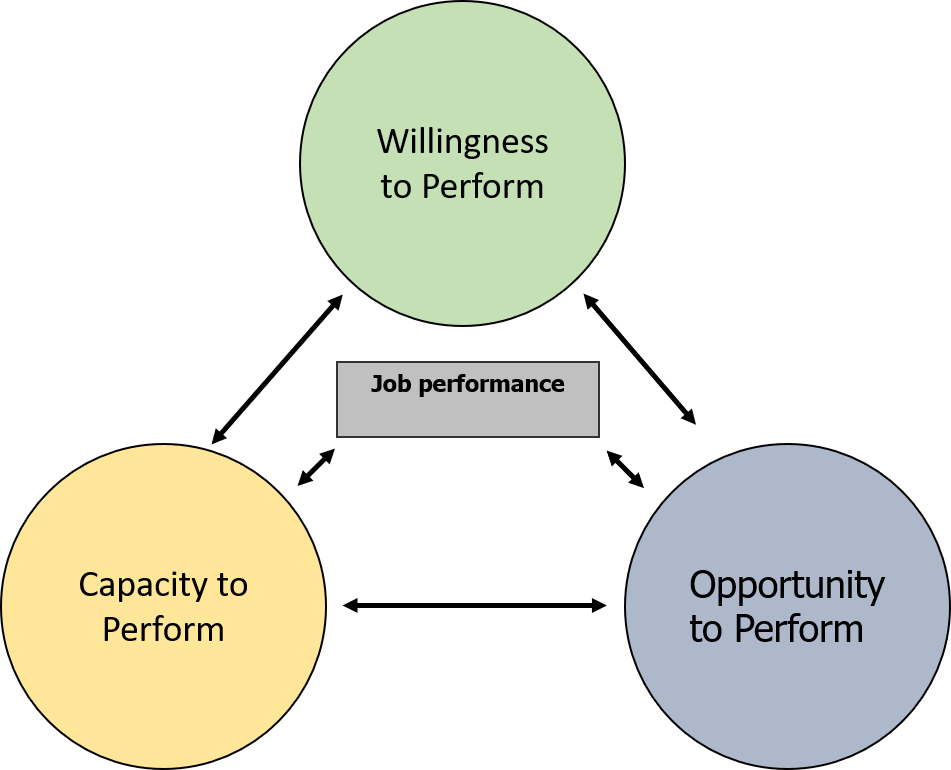
The ability to utilize the abilities of subordinates to the full and bringing out the best in them is what managerial leadership is all about. The yardstick of managerial leadership is not how good the manager is, but how good his or her subordinates are (Mol, 1991).
According to Ivancevich and Matteson (1996:156), job performance may be viewed as a function of the capacity to perform, the opportunity to perform and the willingness to perform.
The degree to which an individual possesses the necessary skills, knowledge, abilities and experience in relation to the task at hand, relates to the employee’s capacity to perform.
The opportunity to perform relates to the employee for instance being provided with the necessary equipment to perform the job. According to Ivancevich & Matteson, (1996), poor decisions and outdated attitudes could also deprive an employee of an opportunity to perform.
An employee’s willingness to perform, relates to the degree to which an employee desires and is willing to exert effort toward attaining the desired job performance (Ivancevich & Matteson, 1996). The latter refers to motivation, which will be the focus of this course. High performance in any shape or form will not be attained without some level of motivation or willingness to perform on the side of an employee.
Both in the public and the private sectors, the motivation of subordinates is one of the main problems in organisations and this was confirmed by an extensive survey carried out to determine the management training needs in nine countries throughout Southern Africa, it was found that the greatest lack amongst managers was the ability to motivate their staff (Montgomery, 1986).
Determinants of Job Performance

Source: Ivanicevich and Matteson, 1996
Work takes on different meanings for different individuals, and an employee’s performance on the job can therefore not be separated from the person that performs it. The socio-economic backgrounds, motives and value systems of individuals all interact with how he/she performs and reacts to efforts to influence his/her performance (Swanepoel, Erasmus, Van Wyk and Schenk, 2000:343). It was already mentioned that management naturally aims to make the most of employees' abilities and it is well established that the manner in which employees are treated have a profound influence on their work performance.
Due to the complexity of work, as well as the inherent complexity of the human psyche, the link between managerial efforts to motivate employees to higher levels of performance and the actual performance realized by these efforts is highly complex and only partially understood. This is compounded by South Africa’s socio-political heritage, disparities in living standards and our cultural and ethnic diversity - these uniquely South African aspects make it risky to import concepts and theories from other countries without trying to place these in the South African context. Due to the death of basic research on the topic of motivation in South Africa, we are however forced to base our study on the traditional (Western) literature on these topics (Swanepoel et al., 2000).
Nellmapius (1996) cautioned that “…no one theory of motivation is universally applicable and that motivation varies from person to person, from time to time and from one situation to another. Application of motivation theories must therefore take the individual and the circumstances into account and be applied in a flexible manner."
